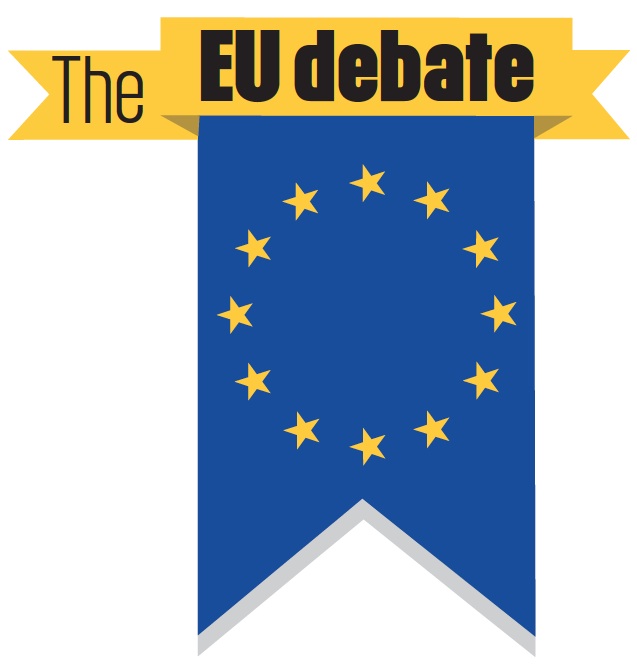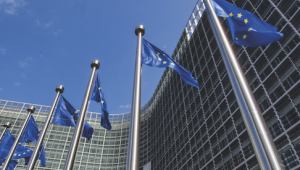At an event hosted by CIPFA and CoVi in the Houses of Parliament yesterday, Raab, a leading campaigner for Britain to leave the European Union, said that Britain’s membership of the EU was “largely irrelevant” in terms of security, as arrangements could be replicated.
“Whilst I certainly think there are forms of law enforcement operational cooperation that are very important with the EU, the stuff we need, you can do whether you are in or out of the EU.”
He gave two examples. “Passenger Name Records [for airlines] – something that a lot has been made of – the EU already has PNR arrangements with Australia, Canada and the US, so that suggests to me that is something you can cooperate on whether you are in or out of the EU, and that is important.
“Europol [the cross-EU police force] has got at least 12 non-EU states with liaison officers. The Americans have more officers at Europol than most EU members states, so that is clearly something we can and should do if we are in or out of the EU. There is no operational cooperation that we want with the EU that we can’t have if we are out of the EU.”
However, leaving the EU would allow the UK to increase border controls, he added. “If someone is coming from outside of the EU, past criminal convictions would be a reason you could rely on alone to bar their entry. It is not alone a factor if someone is coming from the EU to say we are not allowing you to come in, even if it is murder.
“If someone has been to Syria for example, and you’re not sure why, and there is a warning on your intelligence, unless you can establish a ‘genuine serious and present’ threat to security, that alone would not be a reason for denying entry, even temporarily.”
However, Damian Green, a former policing and immigration minister, told the Big Security Event, co-hosted with Quilliam and the UK in a Changing Europe think-tank, said he “fundamentally disagreed” with Raab.
“His pitch is that it is all fine – all this cooperation and data sharing is very good and it will all be OK afterwards. I don’t think that is true and I think the possibility of leaving the EU does put our security at risk.”
He said his ministerial experience of day-to-day policing cooperation showed the benefits, highlighting that European data sharing around policing and security used to take four months but now took just 15 minutes.
Green added that the European Criminal Records Information System (ECRIS) allows information to be shared effectively and quickly.
“Last year, 84% of EU nationals arrested in the UK had their previous convictions checked with ECRIS, it is a live, practical and useful thing we have,” he said.
“This is where I part company with the idea that this would all continue. You don’t need to predict, you can look at what happens. Norway of course works very closely with its other European democratic neighbours, but it doesn’t have the same access to Europol databases as we do, so it just not the case that if we have actively pulled out the EU, we would have the same access.”
The Leave campaign needed to guarantee that the UK would still get access to all these data sharing systems, he added. “If we have to renegotiate them, we would either have to renegotiate them with the EU collectively or with 27 other member states, and we really can’t have a gap between what we have now and making our security worse over the years.”
Dominic Grieve, a former attorney general and current chair of the Intelligence and Security Committee, added there was no evidence that immigration had an impact on security.
“Immigration is a big issue – the question of how many people come into this country to work, whether 184,000 net from Europe and those from outside, is a legitimate topic of debate.
“But there is actually no evidence whatsoever that this immigration in undermining our national security. It may be placing pressure on infrastructure, it may be leading to issues around schools, hospitals and all sorts of other topics, but security doesn’t really come into it. The reason I say that is this has been taking place now in large volumes for over 15 years, which is a period during which crime has consistently declined.”
Defence minister and Leave campaigner Julian Brazier also addressed the event. He warned the EU would look to apply European procurement rules to defence spending, which could affect Britain’s defence relationship with the US.
“The commission itself has openly called for EU defence integration,” he stated.
“Increasingly we will find that we are under pressure to share procurement arrangements with EU countries in a manner that threatens our crucial technology links with the United States.
“Recently the European Commission broke new ground and had a go at the Czechs for buying aircraft for operations in Afghanistan, saying the correct procurement processes weren’t followed, despite the supposed exclusion of defence where security is vital under Article 346 [which sets out the qualified application of EU law to defence].
“As a 2014 brief from the EU Institute for Security Studies put it, it is now crystal clear that Article 346 is neither an automatic exclusion of defence from EU law, nor a provision limiting EU competence.”





















